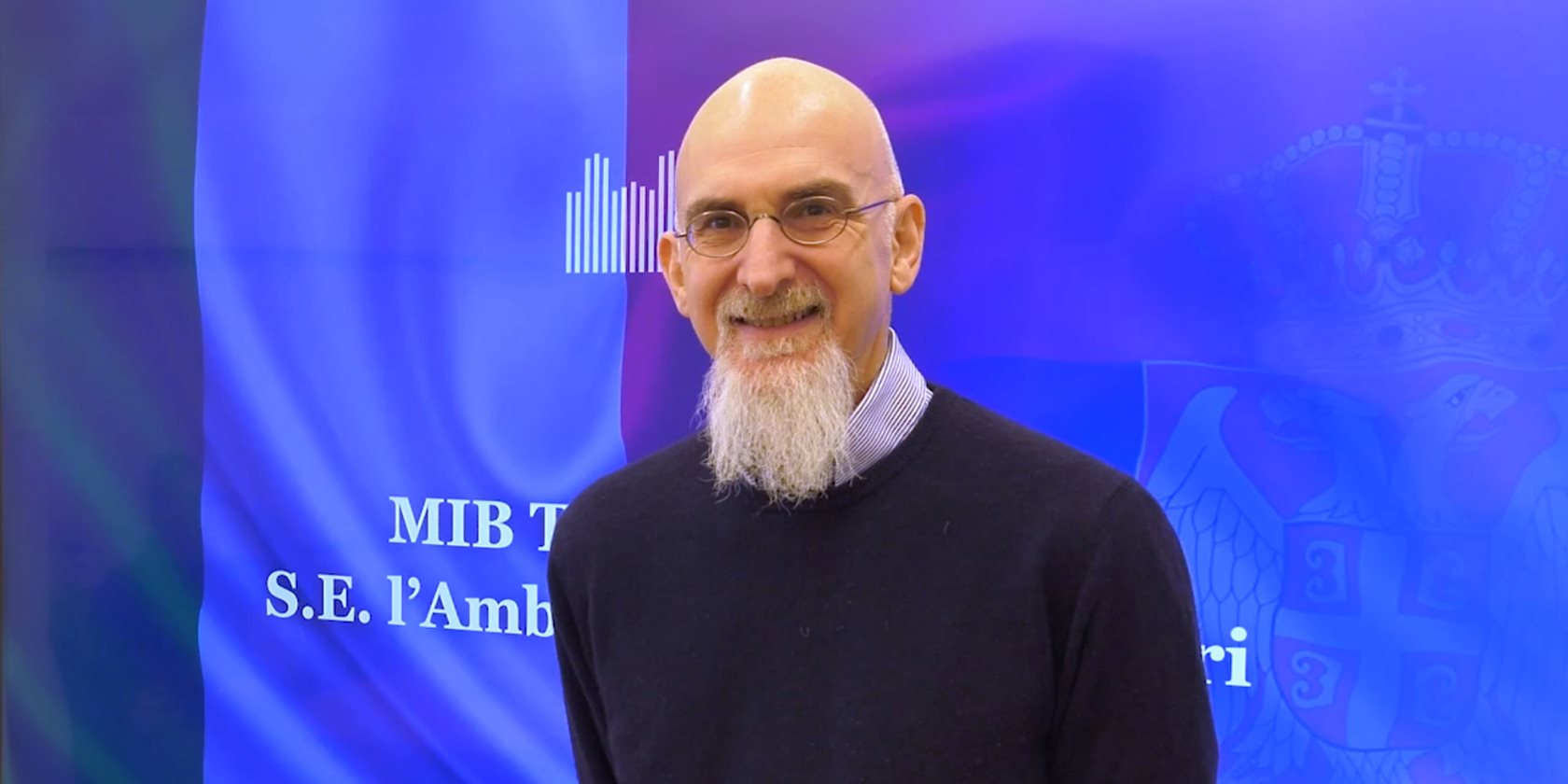
MIB Trieste School of Management had the honor of hosting H.E. Luca Gori, Italian Ambassador to Serbia, who addressed the students of the Origini Italia program.
The visit, which coincided with the second Italy-Serbia Scientific Forum held in Trieste, provided an opportunity to hear the Ambassador’s perspective on the European integration process of the Western Balkans and the future of the region within today’s highly complex international context.
During his address, Ambassador Gori emphasized that the conflict in Ukraine has brought the topic of integration back to the forefront of the European agenda, prompting Brussels to intensify efforts to include the Western Balkans, alongside Ukraine, Moldova, and, potentially, Georgia. According to Gori, this marks a significant turning point after years of stagnation. However, he stressed that it will be up to the countries of the region, particularly Serbia, to undertake the necessary reforms to meet the standards required by the EU.
Serbia stands out as the most influential country in the region but also faces the greatest challenges. Gori noted that Serbian President Aleksandar Vučić has set 2026 as the target year to complete internal reforms, a critical milestone for accelerating EU accession. Nevertheless, the Kosovo issue remains a major hurdle. Despite the Ohrid Agreement, significant progress in the normalization process with Pristina has yet to be achieved. The EU considers such normalization an essential precondition for moving forward with enlargement.
The Ambassador expressed confidence in Serbia’s European future, highlighting the country’s historical, cultural, and economic ties with the continent. While Serbia remains a crossroads between East and West, Gori described it as "a European country by destiny and vocation."
The address concluded with a reference to Gori’s recently published book, "A Larger Europe", which explores the strategic importance of EU enlargement in an era of growing geopolitical challenges. His message was clear: integrating the Western Balkans is not only a priority for regional stability but also for the future of the European Union itself.
The full interview is available on the MIB Trieste School of Management YouTube channel.
The visit, which coincided with the second Italy-Serbia Scientific Forum held in Trieste, provided an opportunity to hear the Ambassador’s perspective on the European integration process of the Western Balkans and the future of the region within today’s highly complex international context.
During his address, Ambassador Gori emphasized that the conflict in Ukraine has brought the topic of integration back to the forefront of the European agenda, prompting Brussels to intensify efforts to include the Western Balkans, alongside Ukraine, Moldova, and, potentially, Georgia. According to Gori, this marks a significant turning point after years of stagnation. However, he stressed that it will be up to the countries of the region, particularly Serbia, to undertake the necessary reforms to meet the standards required by the EU.
Serbia stands out as the most influential country in the region but also faces the greatest challenges. Gori noted that Serbian President Aleksandar Vučić has set 2026 as the target year to complete internal reforms, a critical milestone for accelerating EU accession. Nevertheless, the Kosovo issue remains a major hurdle. Despite the Ohrid Agreement, significant progress in the normalization process with Pristina has yet to be achieved. The EU considers such normalization an essential precondition for moving forward with enlargement.
The Ambassador expressed confidence in Serbia’s European future, highlighting the country’s historical, cultural, and economic ties with the continent. While Serbia remains a crossroads between East and West, Gori described it as "a European country by destiny and vocation."
The address concluded with a reference to Gori’s recently published book, "A Larger Europe", which explores the strategic importance of EU enlargement in an era of growing geopolitical challenges. His message was clear: integrating the Western Balkans is not only a priority for regional stability but also for the future of the European Union itself.
The full interview is available on the MIB Trieste School of Management YouTube channel.



